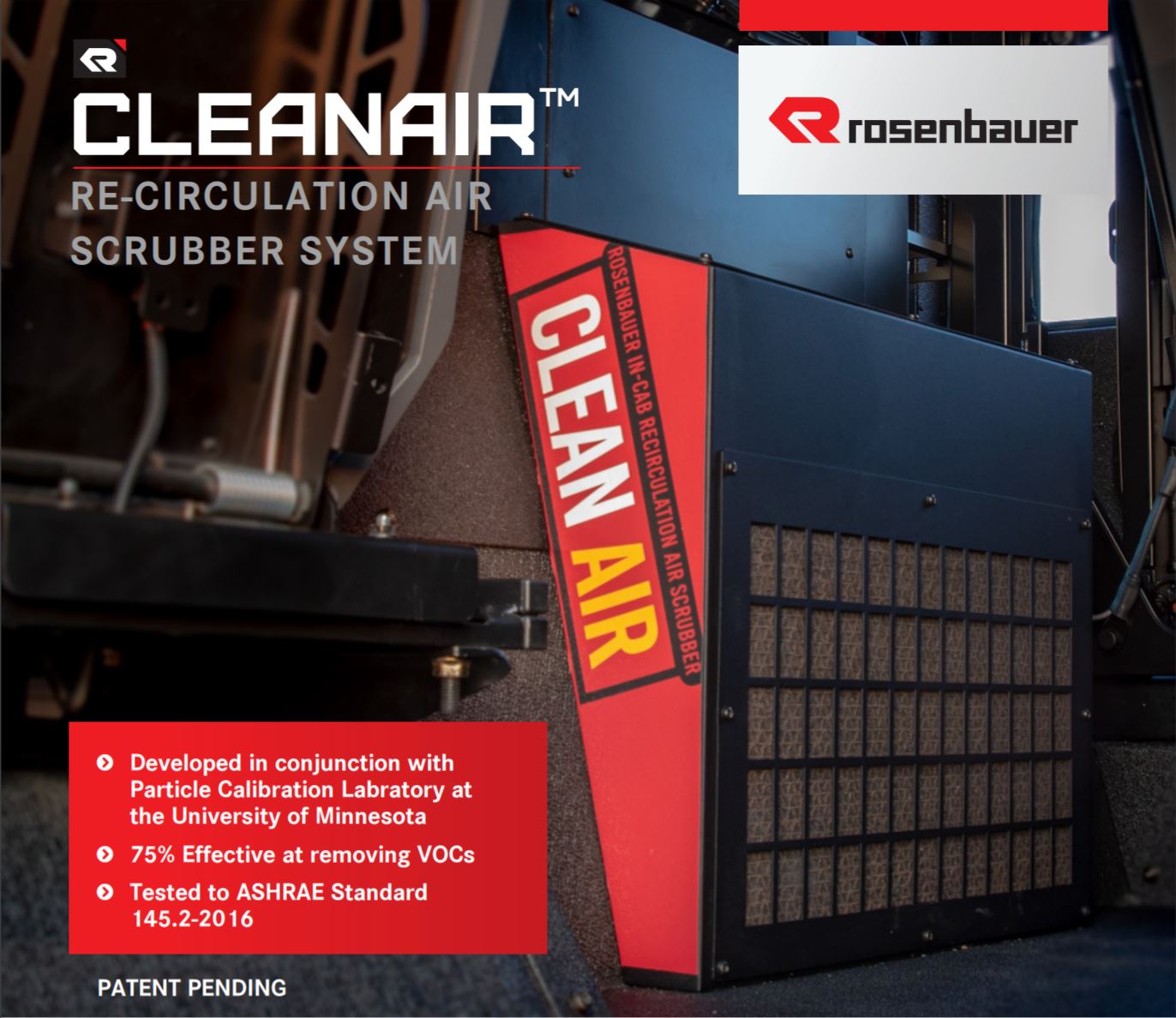







Rosenbauer Fire Truck Cabin VOC Filtration Testing Summary
Bernard Olson and Ian Marabella
University of Minnesota – Particle Calibration Laboratory
Department of Mechanical Engineering
Fire fighters are at risk of exposure to hazardous environments and airborne chemicals while responding to calls in the field. Combustion byproducts at fire scenes present chemical hazards including benzene and other volatile organic compounds (VOCs). Rosenbauer Motors has implemented an in-cab air filtration system to reduce levels of airborne contaminants. The system improves the overall health and safety of firefighters by providing a cleaner space in the fire truck cabin to minimize exposure and inhalation of air contaminants.
Air filtration performance testing of VOCs was performed for Rosenbauer Motors by the University of Minnesota Particle Calibration Laboratory. Field testing was performed in the cabin of a Rosenbauer Commander fire truck following laboratory filter testing guidelines based on the ASHRAE 145.2-2016 Standard method of test where toluene was used as a representative VOC gas. Controlled levels of the representative VOC contaminant at low concentrations were generated within the fire truck cabin to quantify the performance of the filtration system.
VOC levels were measured using a Honeywell ppbRAE 3000+ sensor calibrated with NIST traceability. Peak
initial toluene vapor concentrations of approximately 60 PPM were generated within the fire truck cabin where baseline measurements were recorded without filtration and then compared to measurements made with filtration over time.